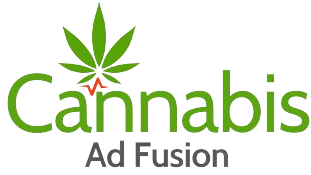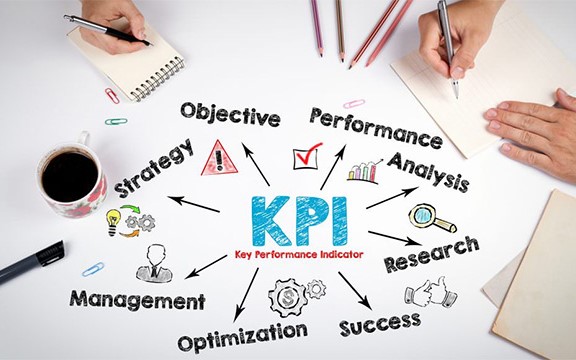Introduction: The Vital Role of KPIs in Digital Marketing
In the dynamic world of digital marketing, success hinges on effective measurement and optimization of efforts. Key Performance Indicators (KPIs) serve as the cornerstone, providing invaluable insights that empower digital marketers to make informed decisions and drive superior outcomes. This blog, brought to you by a leading cannabis branding and CBD marketing agency, explores the critical importance of KPIs in the cannabis industry and highlights essential metrics for success.
Why Track KPIs in Cannabis Marketing?
In the fiercely competitive landscape of cannabis and CBD marketing, tracking KPIs becomes indispensable. Here’s why:
a) Performance Evaluation: KPIs quantitatively gauge the success of marketing campaigns. By tracking KPIs, marketers assess performance, pinpoint areas for improvement, and optimize strategies effectively.
b) Goal Alignment: KPIs align marketing efforts with business objectives. Setting specific KPIs ensures that activities contribute directly to the goals of cannabis and CBD brands, enhancing accountability and focusing resources strategically.
c) ROI Measurement: Tracking KPIs enables marketers to measure the return on investment (ROI) of their campaigns. Understanding which initiatives yield the highest impact allows for efficient budget allocation and maximized ROI.
Importance of KPIs in Cannabis Digital Marketing
KPIs are pivotal in digital marketing for cannabis brands, offering critical insights into strategy effectiveness and campaign performance. Key reasons include:
a) Performance Tracking: KPIs enable real-time monitoring of cannabis and CBD campaigns. Metrics like conversion rates, website traffic, and engagement levels provide actionable insights for optimizing marketing efforts.
b) Data-Driven Decision Making: By analyzing KPI data, marketers uncover trends and improvement opportunities specific to the cannabis industry. This informed approach drives smarter decisions, enhances resource allocation, and boosts campaign efficacy.
c) Campaign Optimization: Continuous KPI tracking allows marketers to identify underperforming areas and refine tactics promptly. Iterative optimization based on KPI insights enhances campaign effectiveness and marketing efficiency in the cannabis and CBD sector.
d) Stakeholder Communication: KPIs serve as a universal language for communicating marketing performance to stakeholders. Data-backed insights demonstrate impact, align expectations, and support informed decision-making for cannabis and CBD brands.
Essential KPIs for Cannabis and CBD Brands
Choosing the right KPIs aligns with campaign goals and objectives. Essential metrics include:
a) Conversion Rate: Measures the percentage of visitors completing a desired action on the website, such as purchases or sign-ups. Tracking conversion rates informs website optimization and user experience enhancements.
b) Customer Acquisition Cost (CAC): Calculates the cost to acquire a new customer. Monitoring CAC helps optimize acquisition strategies, allocate budgets effectively, and maximize returns for cannabis and CBD brands.
c) Return on Ad Spend (ROAS): Evaluates revenue generated per dollar spent on advertising. ROAS metrics guide ad campaign optimization, ensuring efficient budget allocation and maximizing advertising effectiveness.
d) Customer Lifetime Value (CLV): Predicts the total revenue a customer generates over their lifetime. Understanding CLV informs customer retention strategies, personalized marketing efforts, and overall business growth.
e) Website Traffic Metrics: Includes total visits, unique visitors, and page views. Monitoring website traffic provides visibility into brand reach, content effectiveness, and SEO performance in the cannabis and CBD market.
Leveraging Marketing Automation Tools
To effectively measure and optimize KPIs, cannabis marketers can leverage advanced marketing automation tools:
a) Google Analytics: Powerful for tracking website traffic, user behavior, and conversions. Google Analytics offers detailed insights into audience demographics, campaign performance, and website engagement.
b) HubSpot: Comprehensive suite including analytics, lead tracking, and reporting. HubSpot enables measurement of conversion rates, customer engagement, and ROI specific to cannabis and CBD brands.
c) Adobe Analytics: Robust analytics platform for tracking KPIs across channels and devices. Adobe Analytics offers advanced segmentation, data visualization, and reporting features tailored for cannabis marketing strategies.
Conclusion: Driving Success with KPIs in Cannabis Marketing
Tracking KPIs is essential for evaluating campaign performance, aligning strategies with business goals, and driving data-driven decisions in cannabis and CBD marketing. By monitoring critical metrics like conversion rates, CAC, ROAS, CLV, and website traffic, digital marketers can optimize campaigns effectively and achieve marketing success for cannabis brands.
Harnessing the capabilities of marketing automation tools such as Google Analytics, HubSpot, and Adobe Analytics further enhances KPI measurement and optimization. These tools empower cannabis marketers to stay ahead in the competitive landscape, maximize ROI, and unlock growth opportunities in the evolving cannabis industry.
3.5

